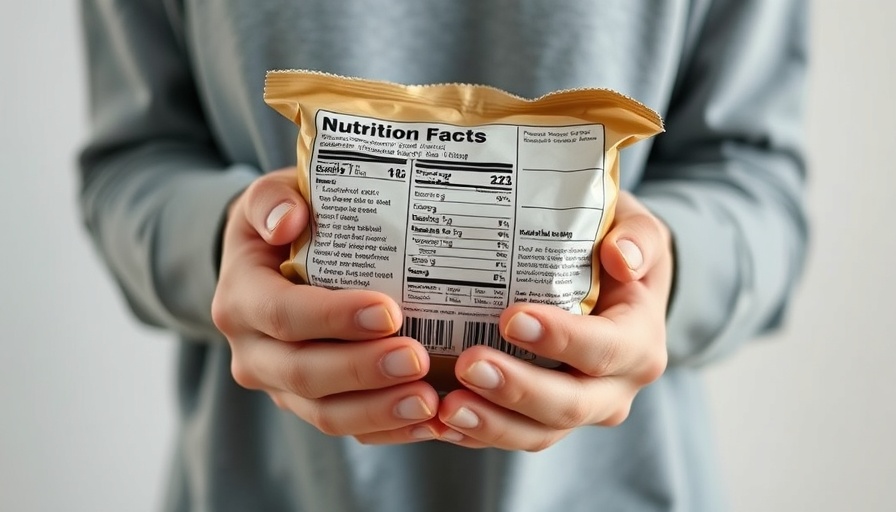
The Controversial Study: Butter vs. Vegetable Oils
Recent headlines have sparked an intriguing debate about the safety of butter versus vegetable oils, following a major study exploring their impact on mortality. Conducted over three decades, this large-scale epidemiological study tracked the eating habits of over 200,000 individuals, leading to some noteworthy findings that have caused a stir within health circles.
In 'Butter vs Vegetable Oil, effect on DEATH | Brand New Study', the discussion dives into the implications of dietary fats, prompting us to analyze its key insights.
The Key Findings Unpacked
The study revealed that individuals who consumed more butter were at a significant 15% higher risk of death, particularly when their intake reached about 14 grams a day, equivalent to approximately one tablespoon. Conversely, those who incorporated greater amounts of plant-based oils showed a promising 16% lower risk of death when consuming around 28 grams, or two tablespoons, of vegetable oils daily.
The oils that emerged as beneficial were mainly olive oil, canola oil, and soybean oil, with olive oil linked to the most notable lower mortality rates. This suggests that greasing our pans with these fats could potentially lead to a healthier life.
Understanding Epidemiological Studies
Epidemiological studies like this one can sometimes create confusion. They often collect dietary data through detailed questionnaires, asking participants about their average food intake. While some skeptics argue this method is unreliable, it’s important to understand that these queries are based on frequented consumption rather than specific meals, which provides a more stable overview of dietary patterns over time.
Caution in Conclusions
It's crucial to approach these findings with a degree of skepticism. The report highlights a significant correlation between butter consumption and higher mortality rates but does not definitively establish causation. Potential confounding factors, like the overall quality of the diet and lifestyle habits—including smoking or exercise—could also play a role in these results.
Specific Deaths and Contextual Use
The study also delved into specific causes of death. Notably, a higher intake of butter was associated with an increased risk of dying from cancer. Interestingly, when butter was used in baking or frying—contexts where the intake was lower—these associations appeared to weaken. This nuanced perspective may suggest moderation is key, and that context matters in dietary discussions.
Broader Implications of Fat Intake
What these findings suggest is a potential need to rethink our fat sources. As more evidence surfaces regarding plant oils’ benefits, health advocates may want to consider substituting butter with healthier oil options. Individuals seeking to mitigate health risks could greatly benefit from integrating oils like olive or canola into their daily cooking routines.
Forging Ahead with Informed Choices
Ultimately, while butter has long held a revered place in our kitchens, emerging scientific insights encourage a balanced approach. Eating too much butter could pose health risks, and opting for healthy fats could not only nourish us better but might also prolong life. This study reinforces the importance of staying informed, as our understanding of nutritional science continues to evolve.
So, the next time you're cooking, consider reaching for that olive oil instead of butter. Making educated choices based on evolving research can empower you to lead a healthier life, aligning your eating habits with a desire for longevity and well-being.
 Add Row
Add Row  Add
Add 




 Add Row
Add Row  Add
Add 

Write A Comment